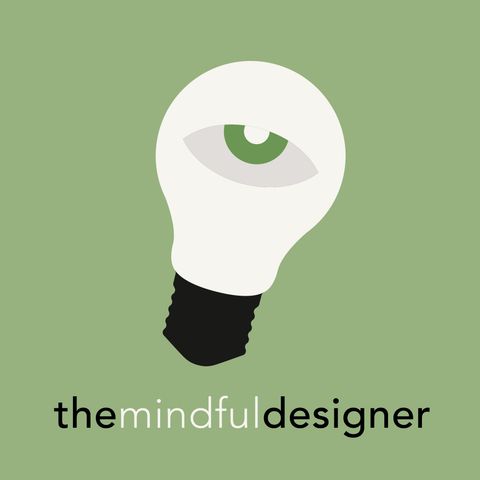Contacts
Info
Mindfulness has been shown to be beneficial for the development of many traits, including insight and creativity. Closure practice is a new type of mindfulness practice based on theoretical principles...
show moreThis course is the result of a graduation project at the department of Industrial Design Engineering at Delft University of Technology. Feel free to contact me for more information.

-
5. Closure practice with a bracelet
12 AUG 2022 · In this last episode of the course, I’ll explain how to do closure practice without the guided audio tracks that you have practised with up to this point.6m 9s -
4B. Closure practice on your own (6 cycles)
12 AUG 2022 · This exercise is the same exercise as the one in episode 3, but is not narrated. Instead, musical markers denote the points of transition. Major for observation, minor for contemplation. This track has 6 cycles of observation and contemplation. You may choose episode 4A for a shorter practice.15m 31s -
4A. Closure practice on your own (3 cycles)
12 AUG 2022 · This exercise is the same exercise as the one in episode 3, but is not narrated. Instead, musical markers denote the points of transition. Major for observation, minor for contemplation. This track has 3 cycles of observation and contemplation. You may choose episode 4B for a longer practice.8m 1s -
3. Closure practice
12 AUG 2022 · This is about learning to perform closure practice as a combination of the observation and contemplation phases. In the introduction, I explained the importance of opponent processing, the dialogue between scaling down and scaling up, between the inner physicist and the inner philosopher. Opponent processing helps you reject unhelpful framings and build up to a critical point where your representation of the context you’re working on can change which makes an insight occur.18m 18s -
2. Contemplation
12 AUG 2022 · This exercise is about learning the contemplation phase of closure practice in isolation. In order to close the design space, to constrain the infinite possibilities for action, you need to integrate parts of the context into new wholes, you need to be able to project those new wholes as potential framings onto your context, fabricate new lenses, obtain new ways of seeing the context. A part of this process is unconscious and you don’t need to have this as an explicit goal. But this is what you’ll be practising.13m 58s -
1. Observation
12 AUG 2022 · This exercise is about learning the observation phase of closure practice in isolation. In order to close a problem space, you need to break up your perception of objects and concepts into parts to find out what they really are. This is what you’ll be practising.11m 20s -
0. Introduction
12 AUG 2022 · Introduction to The mindful designer podcast. Please start here. You can come back to this episode at any time to refresh your understanding of the course. References mentioned: Knoblich, G., Ohlsson, S., Haider, H., and Rhenius, D. (1999). Constraint relaxation and chunk decomposition in insight problem solving. Journal of Experimental Psychology: Learning, Memory, and Cognition, 25(6), 1534–1555. https://doi.org/10.1037/0278-7393.25.6.1534 Merleau-Ponty, M., and Landes, D. A. (2012). Phenomenology of perception. Routledge. (Original work published 1944) Vervaeke, J., and Ferraro, L. (2016). Reformulating the mindfulness construct: The cognitive processes at work in mindfulness, hypnosis, and mystical states. In Hypnosis and meditation: Towards an integrative science of conscious planes (pp. 241–268). Oxford University Press. Vervaeke, J. (2022). How a philosophy of meditation can explore the deep connections between mindfulness and contemplative wisdom. In Routledge Handbook on the Philosophy of Meditation. Routledge.17m 46s
Mindfulness has been shown to be beneficial for the development of many traits, including insight and creativity. Closure practice is a new type of mindfulness practice based on theoretical principles...
show moreThis course is the result of a graduation project at the department of Industrial Design Engineering at Delft University of Technology. Feel free to contact me for more information.
Information
| Author | Aidan Wyber |
| Categories | Courses |
| Website | - |
| aidanwyber@gmail.com |
Copyright 2024 - Spreaker Inc. an iHeartMedia Company
